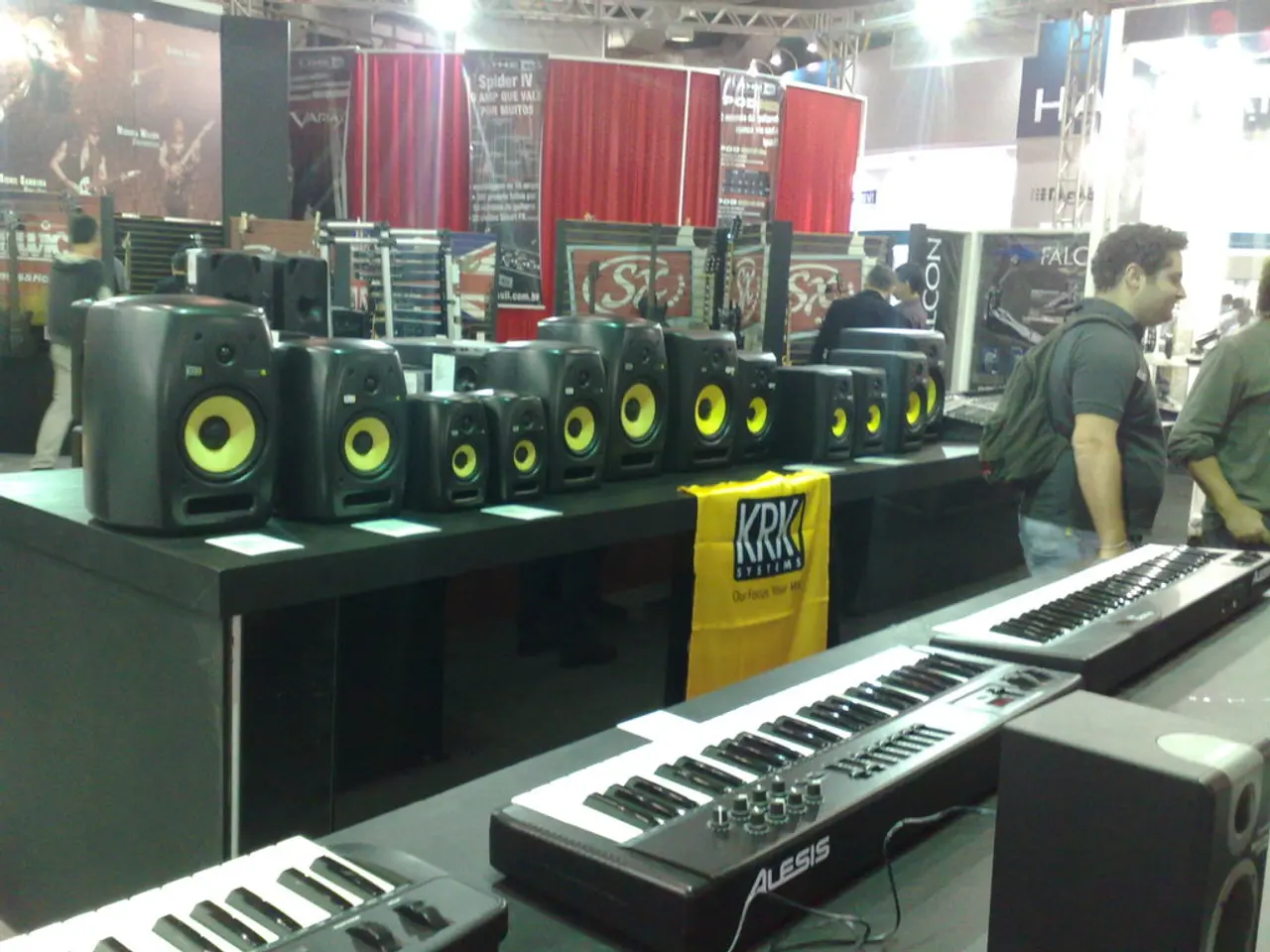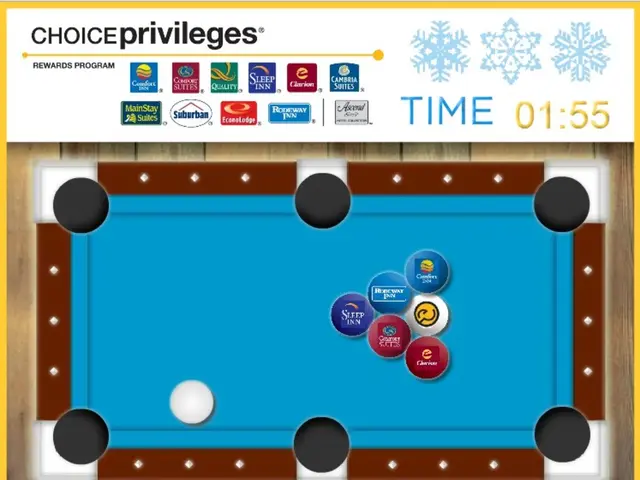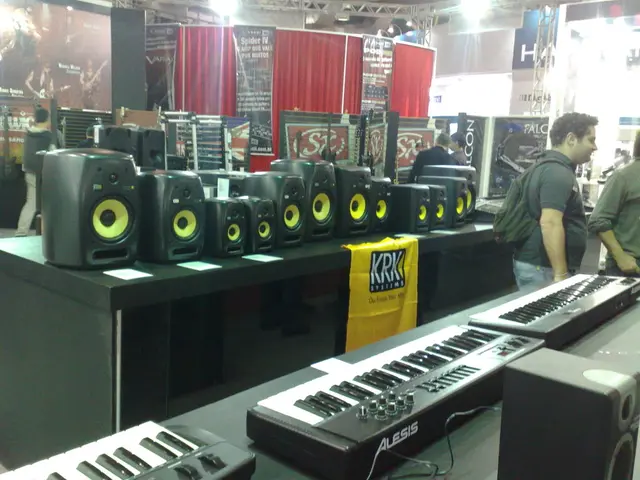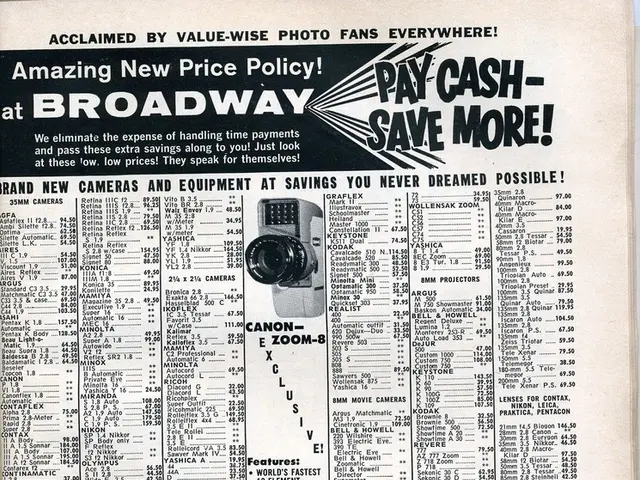Betting Probabilities contrasted with Payout Ratio
In the world of casino gaming, understanding odds can be a bit confusing due to their multiple meanings. Here's a breakdown of how probability, odds, and payouts intertwine in popular casino games.
Odds can describe the payout on a bet, usually expressed as one number "to" another, such as 3 to 2. In the context of casino games, "odds as house edge" refers to the house edge itself, which can be good, bad, better, or worse.
When it comes to casino games, the relationship between odds, probability, and payouts is crucial. Probability measures the likelihood of a winning outcome occurring, usually expressed as a percentage or fraction. For example, the true probability of winning a single number bet on roulette is 1/38, approximately 2.63%.
Odds, on the other hand, are often expressed as a ratio of unfavourable to favourable outcomes. For instance, the odds of winning a roulette single number bet are 37:1. However, casino payouts are deliberately set lower than the true odds imply to ensure a house edge. While the true odds of winning a roulette single number bet are 1:37, the payout is typically 35 to 1, which pays less than the fair odds, thus giving the casino an advantage.
This disparity between true odds and payout odds means that over time, players lose money because the expected value of the bets is negative. The probability of winning multiplied by the payout is less than the amount wagered, reflecting the casino's profit margin embedded in the betting odds or payout structure.
In the table of common casino games, Typical Online Slots have a lower RTP (96.00%) and a higher house edge (4.00%). In contrast, games like Jacks or Better Video Poker have one of the highest RTPs (99.54%) and a low house edge (0.46%). Games like Roulette (French), Craps (Don't Pass), and Blackjack (3:2) also have high RTPs and low house edges.
Interestingly, when there's no house edge, the probability odds and payout odds will be equal. In the table of common casino games, Craps (Odds Bet) has the highest RTP (100.00%) and no house edge.
RTP can be calculated by knowing the game's payouts and probabilities. When calculating RTP for a game with multiple payouts, you add the RTPs of each payout together. For example, in an example game, the RTP is 88%, which means a 12% house edge.
The house edge refers to the advantage the casino has in a game, determined by the specific probabilities and payouts. The phrase "The house always wins" means that the odds of every casino game are in the casino's favor. However, it's essential to remember that short-term outcomes can be influenced by luck, but over time, the odds take over.
For instance, in the example game, the total return on a $1 bet is $2.20 when the payout odds are 5 to 4. This means that for every $100 wagered, the player can expect to lose $12, while the casino gains $12.
In summary, understanding the relationship between casino game odds, probability, and payouts is crucial for any player. While occasional wins may occur, the long-term expected losses are a reality due to the built-in house profit margin in the betting odds or payout structure.
In the realm of online casinos, players can enjoy popular games such as roulette, blackjack, poker, and various other casino-games. The relationship between the odds, probability, and payouts in these casino-and-gambling endeavors is significant. For example, the true probability of winning a single number bet on roulette is 1/38, while the odds of winning are 37:1, with the payout usually set at 35 to 1, resulting in a house edge for the casino. In contrast, games like Jacks or Better Video Poker have one of the highest RTPs (Return to Player percentages) and low house edges, offering better chances for the player. The house edge, calculated by knowing the game's payouts and probabilities, refers to the advantage the casino has, and the phrase "The house always wins" means that, over time, the casino's odds favor them. However, short-term outcomes can be influenced by luck, but the odds ultimately prevail in the long run.







